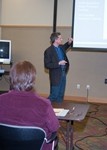The Bullet:
Lowe’s stores throughout California were busted by the California DTSC for gross violations of state and Federal hazardous waste regulations. Lowe’s agreed to pay a settlement of $18.1 million.
Who:
The California Department of Toxic Substances Control (DTSC), DTSC’s Office of Criminal Investigations (OCI), 31 California district attorneys and two city attorneys. OCI is a special investigation unit within DTSC consisting of peace officers, scientists and a computer forensic specialist who investigate criminal misconduct and other violations of the hazardous waste laws in California. It is the only criminal investigations unit within the California Environmental Protection Agency. It is part of the Office of Legal Affairs.
Lowe’s Home Centers operates more than 1,830 stores in the United States, Canada and Mexico. It serves approximately 15 million customers each week and employs more than 260,000 people.
What:
Under the final judgment, Lowe’s must pay $12.9 million in civil penalties and costs. An additional $2.1 million will fund supplemental environmental projects furthering consumer protection and environmental enforcement in California, and Lowe’s will fund hazardous waste minimization projects of $3.2 million. The retailer will be bound under terms of a permanent injunction prohibiting similar future violations of the law. DTSC will receive about $1.67 million paid as penalties.
Where:
The civil enforcement action was filed in Alameda County, California and led by the district attorneys of Alameda, San Joaquin and Solano counties. The alleged violations occurred at more than 118 Lowe’s stores throughout California.
When:
The settlement was announced by the CA DTSC on April 2, 2014. The violations are alleged to have occurred over a six and a half year period.
Why:
It is alleged that more than 118 Lowe’s stores throughout California unlawfully handled and disposed of hazardous wastes. Those hazardous wastes and materials included pesticides, aerosols, paint and colorants, solvents, adhesives, batteries, mercury-containing fluorescent bulbs, electronic waste and other toxic, ignitable and corrosive materials. At some Lowe’s stores, employees were unlawfully throwing away batteries and compact fluorescent light bulbs that customers had turned in to be recycled.
Stores are required to retain their hazardous waste in segregated, labeled containers to minimize the risk of exposure to employees and customers and to ensure that incompatible wastes do not combine to cause dangerous chemical reactions. Hazardous waste produced by California Lowe’s stores through damage, spills and returns is being collected by hazardous waste haulers registered with DTSC and taken to proper disposal facilities.
How:
From 2011 to 2013, OCI scientists and investigators conducted 17 dumpster examinations to gather evidence. These dumpster examinations revealed that Lowe’s was routinely and systematically sending hazardous wastes into local landfills throughout California that were not permitted to receive those wastes.
For More Information:
Contact: Russ Edmondson
(916) 323-3372
russ.edmondson@dtsc.ca.gov
Contact: Tamma Adamek
(916) 324-2997
tamma.adamek@dtsc.ca.gov
FOR GENERAL INQUIRIES: Contact the Department of Toxic Substances Control by phone at (800) 728-6942 or visit www.dtsc.ca.gov. To report illegal handling, discharge, or disposal of hazardous waste, call the Waste Alert Hotline at (800) 698-6942.
Read the DTSC press release: Lowe’s to Pay $18.1 Million Settlement for Illegal Handling and Disposal of Hazardous Waste
Conclusion:
Lowe’s, like others in the retail industry, face unique challenges in the management and disposal of the hazardous waste they generate. That’s why the USEPA is currently seeking comments from those within the retail industry regarding the drafting of regulations specific to them. These violations are a good example of what can happen at a retail store – or any business – when facility personnel do not receive the required training: Hazardous Waste Personnel and HazMat Employee and as a result lack even a basic understanding of what is required for compliance.

Please don’t hesitate to contact me with any questions about the hazardous waste regulations of the USEPA, CA DTSC, or whatever state your business is located.
Daniels Training Services 815.821.1550/Info@DanielsTraining.com/https://danielstraining.com/ |
